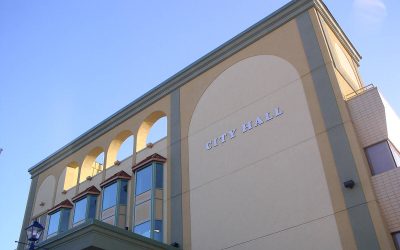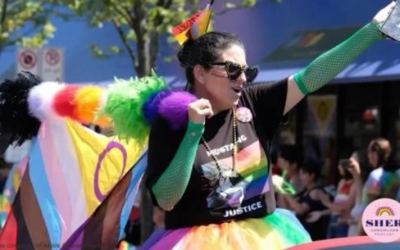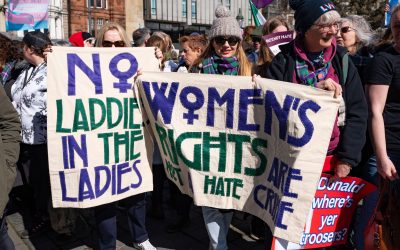Race and Culture Not the Same
Culture is not destiny, especially when that culture is frozen in time.
This is the argument of Disrobing the Aboriginal Industry, a newly-released book by two academics that is making waves within the academic world. In the work, Frances Widdowson, a political scientist, and Albert Howard, a former government and aboriginal group consultant, suggest that indigenous peoples did not exist at the same level of social and cultural development as Europeans when they first encountered each other. Even more controversially, they suggest many pre-modern characteristics of indigenous societies still exist in First Nation communities today and prevent them from integrating into modern society and succeeding.
This, they argue, is the problem confronting First Nations today: they need to catch up culturally.
Before one assumes this is a “racist” argument, one must understand there is a big difference between race and culture. All societies, including European ones, passed through periods of cultural evolution, which is determined by environmental factors, not biology. At one point, European societies were small, kinship-based societies just like indigenous peoples. Because they lacked surplus food production, First Nation societies did not enjoy the division of labour that European civilizations had at the time and did not have the sophisticated, literate society that grew out of that.
The failure to see obvious differences in civilizations, they argue, is part of the “post-modern” thinking dominating academia.
The problem as they see it is that well-intentioned academics, seeing the disadvantages First Nations face, feel guilty and as a result, never criticize First Nations, no matter how problematic some aspects of their cultures are for modern life.
I have Mohawk and other indigenous backgrounds. However, I am quite pleased my ancestors came into contact with Europeans. I do not think I would enjoy a low-technology, nomadic existence and being confined to subsistence agriculture. I appreciate the blessings of individual rights and modern women’s freedoms. I take advantage of modern medicine and science. I have French-Canadian heritage, but I do not regret that my ancestors encountered the British who held to a more efficient form of land ownership and a market economy, not to mention democracy.
Does all this make me a “traitor” to my people? I don’t think so, as pre-modern economic and social features are not intrinsic to any people.
Some cultural traditions are not worthy of holding. Years ago, the Canadian Museum of Civilization held an exhibit on the Bog People of Northern Europe. One of the exhibits was of a girl with a rope around her neck. According to the description, she likely was sacrificed because she had an awkward gait and curved spine. I am glad that tradition was discarded.
One wonders how post-moderns would respond if they were present when Spanish explorer Hernando Cortes witnessed the Aztecs sacrificing the hearts of prisoners to prevent the cosmos from collapsing. Would they pass judgment in that case?
First Nation people better honour their ancestors and their children by improving their conditions, which often means abandoning ways that do not subscribe to modernity.
This comment appeared in the Winnipeg Sun on November 28, 2008.
Follow-up comment – Thinking Outside the Indian Box
Some aboriginal activists must expand beyond the narrow confines of ad hominem personal attacks.
In my above comment, I suggested there is a difference between race and culture. I agreed with academic Frances Widdowson when she argued that indigenous peoples need to integrate some cultural characteristics in order to succeed in modern society. To not do so would be to subject our people to continued impoverishment and marginalization. One example they gave is kinship-based reciprocity, a feature of all tribal societies where in politics, family and friends come first. In band politics, this leads to nepotism and corruption.
For thin-skinned First Nations who carry a narrow identity on their sleeve, this is too much.
One Mohawk blogger called “Shmohawk” argued I must hate my indigenous heritage for writing this way. I must suffer from neurosis for thought crimes against the Aboriginal Orthodoxy. Please spare me the cheap drugstore psychoanalysis.
It is a common tactic within indigenous politics to say anyone disagreeing with dominant ideas is not a true Indian, when no one has a monopoly on what it means to be indigenous.
I am quite proud of my indigenous background. I am familiar with Iroquois teachings and if I have children, will teach them about their background. I do not need anyone to tell me who I am. What I love about this side of my ancestry is the humour and laughter of First Nation peoples, including the inter-dependence of our communities and the respect for consensus. I respect the pride and dignity of my indigenous ancestors and their versatility.
The problem with people like “Shmohawk” is they cannot look at their identity or background objectively.
They do not possess skills of dispassionate analysis. These people are dangerous in journalism and research. They do not have the honesty to look at how cultures evolve and change and their time-honoured tactic is to romanticize the past and distort it. While being proud of your indigenous background, one should see where it was limited or heaven forbid, where it went wrong. I love my First Nation background but I am committed to objective truth and believe in values that transcend culture. “Shmohawk” said I needed to choose to be either Indian or white, but not both. Well, I am proudly both. The difference is I am an aboriginal who thinks for himself.
The problem is Canadian indigenous identity is caught within an essentialist prison. Essentialism is the idea that groups have certain characteristics that cannot be changed.
There is little diversity within indigenous nationalism. You must accept the traditional conception presented by elites or you are kicked off the island. The reality is all cultures change, including First Nations. It is Sitting Bull who said, “When you find anything good in the white man’s road, pick it up. When you find something bad, leave it alone.”
People are not encouraged to think for themselves, as the concept of individual rights has not been developed. For two years, I wrote for an indigenous newspaper and saw this petty identity politics at work. If you criticize the status quo, you’re not a real Indian.
My hope is that the day will come when aboriginals can think for themselves and still be Indian.
Imagine that.
This comment appeared in the Winnipeg Sun on December 23, 2008.


